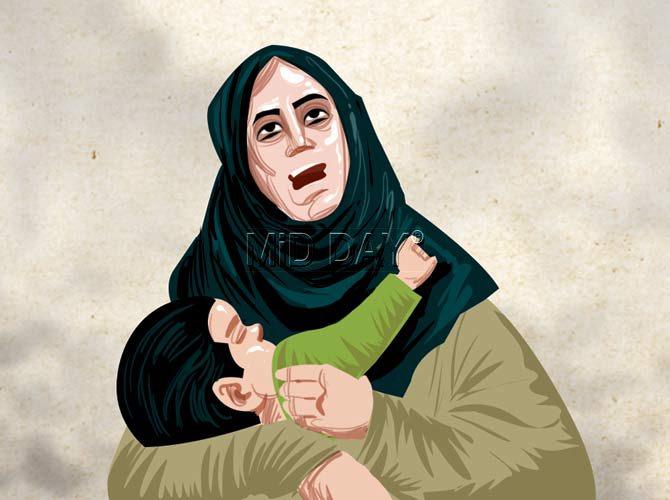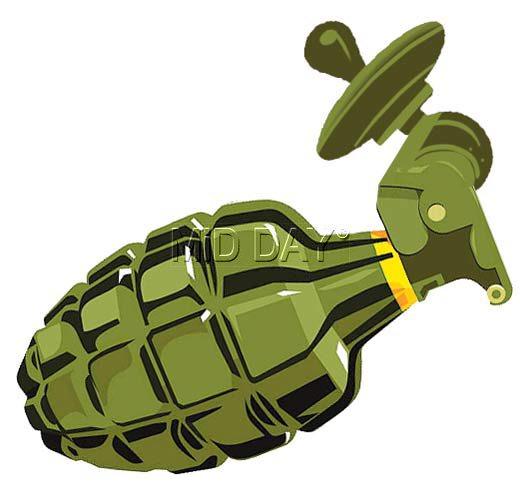Even after several attempts by world powers to put an end to Syria's civil war, the Assad govt continues to destroy the nation


Illustrations/Ravi Jadhav
Almost 18 years into the conflict that has ripped Syria apart, the question is whether Syrians will ever be able to dream of a normal life. mid-day takes a look at how the situation has worsened over the years.
Syria bleeds
Last month, Syrian government forces backed by Russian warplanes escalated bombing of Eastern Ghouta, the remaining rebel stronghold. Almost 20 days into the bombing, more than 500 people have been killed and thousands injured. Most people who escaped death or injury are hiding in underground bunkers. Residents of Eastern Ghouta have been sceptical about a five-hour daily humanitarian pause that started on March 1. The pauses are actually meant to create 'human corridors' to allow evacuation of those who need medical help, but air raids continue to target residential areas.

ISIS deepens the crisis
The Islamic State grew out of al-Qaeda in Iraq. It was formed by Sunni militants after the US-led invasion in 2003 and became a major force in the country's sectarian insurgency. In 2011, the group joined the rebellion against Assad. In 2013, it started seizing control of territories in Syria. By August 2016, it had become operational in 18 countries. However, slowly over the years, the leadership weakened and the administration seized to exist.

Chemical attacks
>> A suspected chemical attack took place in the suburbs of Damascus on August 21, 2013. The opposition accused pro-Assad forces of carrying out the attack. However, government officials denied it. US, French and British leaders said they were considering retaliatory strikes against the Assad regime. But the prospect of international military intervention in Syria didn't work out. Russia, US and Syria agreed to place all the chemical weapons under international control, and by June 30, 2014, the weapons were removed from Syria.
>> The second chemical bombing in the country happened on April 4, 2017. It turned a northern rebel-held area into a toxic kill zone.
How it all started
Bashar al-Assad had come to power in 2000 with the reputation of a reformer, but soon, he revived his father's authoritarian tactics. Protests started in 2011 in Dara. Violence flared after some children were arrested for writing political graffiti. The Syrian government used violence to suppress demonstrations. Opposition groups started to form.
Role of world powers
The conflict is like a number of overlapping proxy wars, between the US and Russia, Israel and Iran, and Turkey and Kurds. Iran and Russia support the Syrian government politically and militarily. Russia has been waging an air campaign against the rebel faction at the behest of the government.
Violence escalates
2011: Hundreds stage protests in Damascus and Aleppo calling for greater civil liberties. On March 18, security forces open fire on a protest in Dara, killing four. Soon, Assad's forces start cracking down on the opposition.
2012: Bombing at a national security building in Damascus during a government meeting kills four top officials. Fighting spreads to Aleppo.
2013: Rebel forces capture Raqqa. With the help of Hezbollah fighters, Assad's forces recapture Qusair from the rebels. Following this, a chemical weapons attack takes place in Damascus.
2014: Rebels withdraw from Homs. Syrians in government areas vote for the presidential election and Assad wins with 88.7% votes. ISIS takes control of Syria's oilfield al-Omar. Soon, US-led coalition starts airstrikes
on ISIS targets.
2015: Russia starts launching airstrikes in Syria in support of Assad's forces. Indirect peace talks between the government and the opposition in Geneva collapse.
Ceasefire attempts
Feb-July 2016: World powers negotiate a ceasefire between the warring parties. On February 22, 2016, US and Russia declare the terms for the Cessation of Hostilities in Syria. However, towards the end of February, the truce is put on hold.
Sept 2016: Russia and US strike a deal to broker a truce between the Syrian government and a US-supported coalition of 'mainstream Syrian opposition rebel groups'. The ceasefire comes into effect on September 12, but is poorly adhered to.
Dec 2016-Feb 2017: Turkey and Russia broker a nationwide Syrian ceasefire that was supposed to start on December 30, 2016, but even after a number of rebel groups sign up for the truce, hours before it's about to be implemented, clashes start between the Army of Victory and government forces in Hama Governorate.
May 2017: Russia, Iran and Turkey sign an agreement to create de-escalation zones in Syria, but some rebel groups reject the agreement.
July 2017: This time, US, Russia and Jordan broker a ceasefire. However, in early October, the US Department of State says the ceasefire has been put on hold.
May 2017
Russia, Iran and Turkey called for setting up four de-escalation zones in Syria
Feb 24, 2018
The UN passed a resolution calling for a 30-day ceasefire across Syria
4,65,000
Number of Syrians killed in the conflict till date
Catch up on all the latest Mumbai news, crime news, current affairs, and also a complete guide on Mumbai from food to things to do and events across the city here. Also download the new mid-day Android and iOS apps to get latest updates
 Subscribe today by clicking the link and stay updated with the latest news!" Click here!
Subscribe today by clicking the link and stay updated with the latest news!" Click here!









